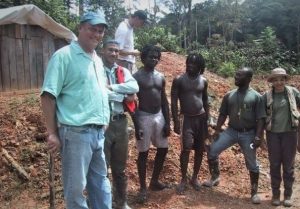ISSUE 41: WHO CARES ABOUT CONSENT?
HINT: COMPANIES, SHAREHOLDERS, INVESTORS, MANAGERS, AND LENDERS NEED SOCIAL LICENSE TO OPERATE
With any capital project, the proponent seeks permissions. Whether a wind farm, an oil pipeline, a highway or a food processing facility, a government agency will issue a permit, a form of state consent, upon the successful completion of a process that focuses on potential impacts and plans for their mitigation. In essence, the government is providing a ‘formal license’ on behalf of its constituents.
FROM PUBLIC REVIEW TO CONSULTATION TO CONSENT
As part of the permitting process, and prior to receiving a ‘go-ahead’, the typical project undergoes a formal public review. There, in a carefully choreographed exercise, plans and details are analyzed, and the environmental and social implications summarized in a set of impact assessments and associated management plans. Consultation provides the opportunity for interested parties to comment, and add their support or displeasure, to the public record. At the end of consultation, appropriate agencies review the full permit application, consider the input generated during consultation, and issue a decision intended to serve public and private interest. This allows interested stakeholders to potentially influence decision-making around major projects. The process of consent and final permitting is under the purview of the state.
What happens when Indigenous People might potentially be impacted by such projects? “Free, prior and informed consent” (“FPIC”) is a concept that has evolved over the last several decades to describe the right of sovereign, Indigenous People to formally provide or withhold permission for activities that could potentially affect them. Recent spotlights on project missteps, protests, and resulting business uncertainty underscore FPIC as an evolving aspect of environmental, social and governance (“ESG”) worthy of review and careful consideration.
A SHORT HISTORY
The last 40 years saw the evolution of international consent doctrines that previously received relatively little attention from the private sector. As before, overview, consultation and consent were thought to be primarily the purview of government.
previously received relatively little attention from the private sector. As before, overview, consultation and consent were thought to be primarily the purview of government.
In the 1980s, public and institutional debate around international norms focused on the issue of peoples’ “right to self-determination.”
1989 – the International Labour Organization’s Indigenous & Tribal Peoples Convention 169 required signatory governments to undertake consultations with Indigenous and Tribal peoples with the objective of seeking or achieving agreement or “consent” around activities that impacted them.
2007 – the United Nations issued its Declaration on the Rights of Indigenous Peoples (UNDRIP). This document included three articles mentioning the requirement for States to obtain FPIC with Indigenous Peoples.
Business reactions were generally limited to policy level support for “indigenous rights to self-determination,” with the exercise of these rights assumed to be the domain of government. For example, prior to 2000, within mining circles, information flow between communities and an operation or project was mostly one-way push communication: company announcements, fact sheets, bulletin boards and perhaps advertising.
Everything changed when the International Finance Corporation (“IFC”)—the World Bank financing division to private sector companies working in emerging markets—referred in 2006 in its Performance Standards to “free, prior and informed consultation.” This caused consternation in the extractive sector, as it appeared industry could ultimately face new and unpredictable challenges and uncertainty. Free, prior and informed consultation, it was feared, could evolve into an additional source of “no,” where lack of or inadequate consultation could leave a project short of consent.
This dreaded evolution in the framework of consent requirements and expectations has come to pass. In 2012 the IFC revised its Performance Standard #7 about Indigenous Peoples, such that borrowers were now required to obtain the free, prior and informed consent of (vs. consultation with) project-impacted communities. The Equator Banks[1] followed suit and the Equator Principles version 4[2] now requires FPIC for projects affecting Indigenous communities.
THE FPIC MOVEMENT – OBTAINING CONSENT IS COMPLICATED AND EXPANDING
A sizeable portion of the finance available for projects in areas where Indigenous peoples live now oblige companies to come to terms with their communities and seek and obtain their consent. This is not an easy task. Issues include:
Definitions of indigeneity;
Processes and implementation of this policy;
Representation (who does one obtain consent from in multi-ethnic communities?);
What constitutes consent? (Is FPIC the right of veto? What if it is coming from a minority of the community?).
It also does not take account of a democratically elected government’s sovereign right to develop their natural resources.
Nevertheless, while a robust consultation process is the cornerstone of what constitutes “consent”, the FPIC movement requires a final “yes” or “no”, despite the quality of the consultation process.
The move towards the principles of FPIC has not limited itself to those projects that may impact the Indigenous. In recent years, heightened scrutiny on the social and governance aspects of major projects and business practices appears to be shifting the manner in which “typical” permitting is to be pursued. The Dakota Access and Keystone XL pipelines demonstrate the need for FPIC alignment and supporting processes—these projects faced significant challenges from Indigenous People. But projects like the expansion of the interstate highway I-45 in Houston are also at risk due to stakeholder concerns—in this case, regarding environmental justice rather than indigenous sovereignty.
PRIOR CONSENT IS ALREADY ONSHORE
Many examples demonstrate heightened interest in meaningful stakeholder engagement and participatory decision-making. Some recent ones include:
- The Federal Energy Regulatory Commission (FERC) announced in February 2021 that it will better incorporate environmental justice and equity concerns into its decision-making process[3].
- Last May, a pipeline company committed to end its pursuit of eminent domain lawsuits[4] and explore alternatives to a planned but contentious route.
- A coalition of national NGOs (Center for Biological Diversity, Sierra Club and others) sued the US Army Corps of Engineers over its re-issue of a nationwide oil and gas pipeline construction permit[5].
- Communities in the Midwest have brought significant concern and challenge to the permitting of solar facilities.
CAREFUL CONSIDERATION OF COMMUNITY NEEDS AND SKILLED NEGOTIATION EXPEDIATE CAPITAL PROJECT SUCCESS
Despite all the challenges, FPIC can be achieved. Good examples are Newmont’s Ahafo Mine in Ghana, their Merian mine in Suriname, Rio Tinto’s Argyle Diamond Mine and their Weipa bauxite mine, both in Australia.
Increased scrutiny and stakeholder interest need not mean that more projects are bound to be delayed or derailed, or that permitting and operating projects has become intractably difficult. Rather, it points to the fundamental need to build strong knowledge bases of communities early on, and to have the right people to establish and nurture strong relationships. At this juncture, successful companies are focused on consent, and pursue social license by building their own capacity in stakeholder engagement, committed leadership, patience and orientation to process as well as outcomes.
[1] The Equator Banks are financial institutions that have adopted the Equator Principles, a risk management framework for determining, assessing and managing environmental and social risk in projects. A current list of these institutions (118 in 37 countries at the time of writing) can be found at https://equator-principles.com/members-reporting/. [2] Available at https://equator-principles.com/ep4/ [3] https://www.ferc.gov/news-events/news/ferc-chairman-acts-ensure-prominent-ferc-role-environmental-justice [4] https://www.chron.com/news/article/Oil-pipeline-builder-agrees-to-halt-eminent-16151266.php [5] https://www.reuters.com/article/usa-energy-nwp12/enviros-sue-over-army-corps-new-nationwide-permit-for-oil-gas-lines-idUSL1N2MQ2HG
News & Notes

Acorn International
1702 Taylor St, Suite 200B
Houston, TX 77007, USA
1213 Purchase St
New Bedford, MA 02740, USA
